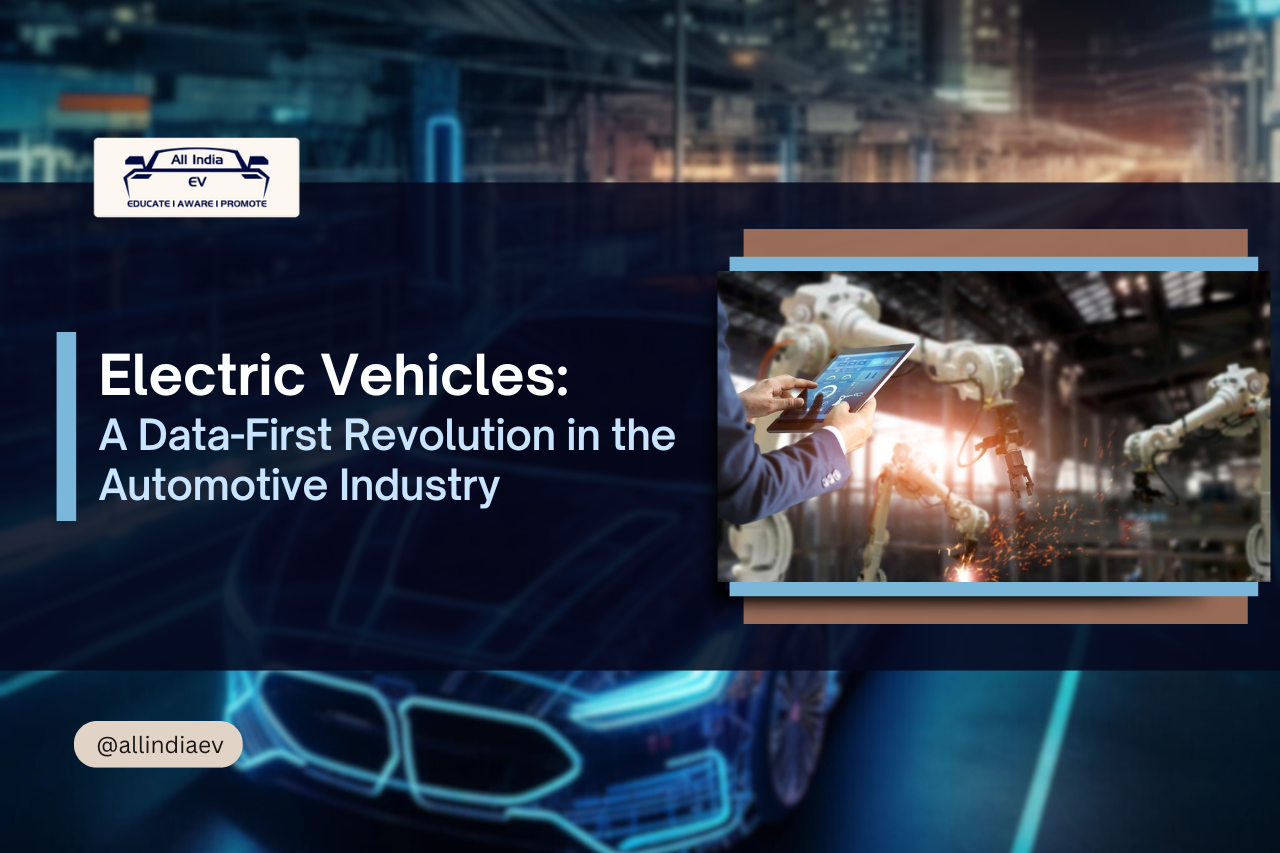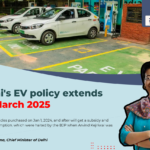
Electric Vehicles: A Data-First Revolution in the Automotive Industry
The electric vehicle (EV) industry is often discussed through the lens of clean energy and sustainable transportation. However, beneath this surface lies a deeper, often underappreciated transformation: EVs are first and foremost a data-driven industry, and only secondarily an automotive one. From battery performance to charging infrastructure to energy consumption patterns, EVs generate vast amounts of data, which are then analyzed to optimize not only the vehicles themselves but the entire ecosystem that supports them. As the industry matures, data will become the most valuable commodity, shaping everything from vehicle performance to energy distribution.
- Electric Vehicles: A Data-First Revolution in the Automotive Industry
- The Data-Driven Nature of EVs: An Overview
- The Role of Data in Battery Companies
- EV Manufacturers: Tracking Vehicle Performance and Infrastructure Needs
- Charging Companies and Power Distribution: Managing Energy Demand
- The Future: A Data-Driven EV Ecosystem
The Data-Driven Nature of EVs: An Overview
At first glance, an electric vehicle might seem like just another car. However, with EVs, data generation starts the moment the vehicle hits the road. The fundamental difference lies in the way electric vehicles operate. Unlike traditional internal combustion engine (ICE) vehicles, EVs rely on complex systems of batteries, motors, sensors, and software. Every component of an EV is interconnected and communicates real-time data to optimize its operation. This makes EVs more like mobile data centers on wheels than mere vehicles.
Moreover, EV manufacturers track various metrics, such as battery performance, charging behavior, and even road conditions, to better understand and improve the user experience. This data is not only valuable for automakers but also for a whole host of industries and service providers, from battery companies to charging infrastructure providers, energy utilities, and even city planners.
The Role of Data in Battery Companies
A cornerstone of the EV ecosystem is the battery — both its performance and longevity are pivotal to the success of electric vehicles. Modern EV batteries are highly sophisticated, with smart sensors embedded to monitor everything from temperature to charge cycles to overall health. Battery manufacturers collect and analyze this data in real-time to ensure that batteries perform optimally and last longer.
For instance, battery companies can track real-time charging and discharging data to gauge how effectively the battery is interacting with the charging network. This data is invaluable for determining the reliability of various charging stations, and identifying issues such as voltage drops, inconsistencies in power supply, or even malfunctioning hardware. It also helps battery manufacturers develop more efficient battery management systems (BMS) that can extend the lifespan of the battery, prevent overcharging, and optimize energy use across different environments.
Furthermore, understanding the charging patterns — such as when and how often vehicles are charged — can provide insights into battery chemistry, helping manufacturers refine their products. Battery companies often use aggregated data from millions of vehicles to predict how their batteries will behave over time in various conditions, such as extreme temperatures or long-term usage, and make necessary improvements.
EV Manufacturers: Tracking Vehicle Performance and Infrastructure Needs
Electric vehicle (EV) manufacturers, including companies like Tesla, and Rivian, and traditional automakers like General Motors and Ford, are not just car manufacturers; they function as data hubs that collect vast amounts of telemetry to improve vehicle performance, customer experience, and infrastructure planning. Below are some of the key ways in which EV manufacturers utilize data:
- Vehicle Performance Tracking:
- Manufacturers collect data on every system within the car, including battery performance, driving speed, driving habits, and state of charge.
- This data helps optimize vehicle performance, improve battery longevity, and provide valuable insights into how EVs are being used in real-world conditions.
- Charging Infrastructure Insights:
- Data on how, when, and where EVs are charged helps manufacturers understand the availability and performance of public charging stations.
- By tracking this data, manufacturers can identify gaps in the charging network and highlight areas that are underserved, aiding the development of new charging infrastructure.
- Road Condition Data:
- EVs gather data on road conditions, such as pavement smoothness, inclines, and surface quality.
- This data can be used to improve the driving experience and optimize battery management systems, particularly in regions with challenging road conditions. For example, poor road quality may trigger adjustments in driving settings to maximize energy efficiency and reduce battery strain.
- Autonomy and Safety Features:
- EVs rely on real-time sensor data for advanced features like adaptive cruise control, automatic emergency braking, and lane-keeping assist.
- The data collected by these sensors (including information on road signage, traffic conditions, and weather) is used to continually refine the software algorithms that power these systems, improving the safety and autonomy of the vehicles.
Through these data-driven insights, EV manufacturers are not only improving the performance and safety of their vehicles but are also contributing to the broader development of the EV ecosystem, from infrastructure to smarter transportation systems.
Charging Companies and Power Distribution: Managing Energy Demand
The charging infrastructure that supports electric vehicles is just as data-driven as the vehicles themselves. Charging companies, along with utilities and power distribution companies (DISCOMs), rely on vast amounts of data to understand the usage patterns of EV owners.
Charging stations track data on when EVs are plugged in, how long they are charged, and at what rates. By analyzing this information, charging companies can optimize their networks to reduce wait times, manage congestion, and improve the customer experience. Real-time data allows for dynamic pricing models, where customers may pay more during peak hours and less during off-peak times, encouraging users to charge their vehicles when demand is low and reducing the strain on the grid.
Moreover, this data is crucial for DISCOMs and energy providers. The electricity grid was not initially designed to handle the sudden influx of demand from electric vehicles. By tracking data on when and where EVs are charged, utilities can better forecast and manage power distribution, ensuring that energy is available where and when it is needed. For instance, the charging data can help DISCOMs predict peak demand times — such as during evening hours when most people are likely to charge their EVs — and take proactive measures to ensure that the grid is not overloaded.
With this data, utilities can also begin to implement “vehicle-to-grid” (V2G) technologies, where EVs not only consume electricity but also return it to the grid during times of peak demand. This can help balance the grid and integrate more renewable energy sources, such as wind and solar, by using EVs as temporary energy storage units.
The Future: A Data-Driven EV Ecosystem
As the EV industry grows, its reliance on data will only deepen. The integration of autonomous driving technologies, advanced battery storage solutions, and smart grid systems will all be powered by data. In the future, EVs will not only be able to communicate with each other and with infrastructure but also with the broader energy grid, facilitating the seamless flow of electricity to and from the vehicles.
In this new paradigm, EV manufacturers, battery companies, charging infrastructure providers, and energy utilities will become increasingly interconnected, creating an ecosystem where data flows freely between all players to optimize performance, efficiency, and sustainability.
The rise of the EV as a data-first industry will also open new opportunities for innovation. The massive amount of data generated by EVs — whether it’s about road conditions, battery health, or charging habits — will create new avenues for research and development, driving further advances in battery technology, vehicle autonomy, and renewable energy integration.
In conclusion, while the electric vehicle industry may have begun as an automotive revolution, it is rapidly becoming a data-driven industry that stretches far beyond the vehicles themselves. The ability to collect, analyze, and act on data will define the future of transportation, energy management, and sustainability. As EVs become more deeply integrated into our daily lives, their role as sophisticated data generators will be key to unlocking the full potential of a cleaner, more efficient future.










